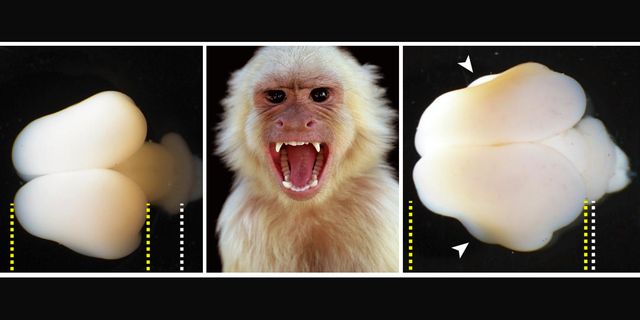This from the same wonderful scientists that want to change your dna with their wretched vaccines.
Uh-Oh, Scientists Used Human Genes to Make Monkey Brains Bigger
That can't be good.
BY TIM CHILDERS
NOV 16, 2020
HEIDE ET AL./ MPI-CBG/GETTY
In an experiment that could portend a real-life Planet of the Apes situation, scientists spliced human genes into the fetus of a monkey to substantially increase the size of the primate’s brain. And it worked.
ADVERTISEMENT - CONTINUE READING BELOW
Researchers from Germany’s Max Planck Institute of Molecular Cell Biology and Genetics in Germany and Japan’s Central Institute for Experimental Animals introduced a specifically human gene,
ARHGAP11B, into the fetus of a common marmoset monkey, causing the enlargement of its brain’s neocortex. The scientists
reported their findings in Science.
This content is imported from {embed-name}. You may be able to find the same content in another format, or you may be able to find more information, at their web site.
The neocortex is the newest part of the brain to evolve. It’s in the name—“neo” meaning new, and “cortex” meaning, well, the bark of a tree. This outer shell makes up more than 75 percent of the human brain and is responsible for many of the perks and quirks that make us uniquely human, including reasoning and complex language.
Not long after our hominid ancestors branched off the evolutionary tree of our current chimpanzee cousins, their
brains underwent a rapid expansion, nearly tripling in size over a span of 3 million years. Hominids’
brains grew so fast that they became cramped in the slowly evolving craniums, causing the distinctly human folding of the neocortex into wrinkles.
Scientists believe this was the result of a number of evolutionary factors, but the expression of ARGHAP11B, something unique to hominids, may have given a boost to the brains of our ancestors, and close-but-now-extinct relatives, the
Neanderthals and Denisovans.
1
1

